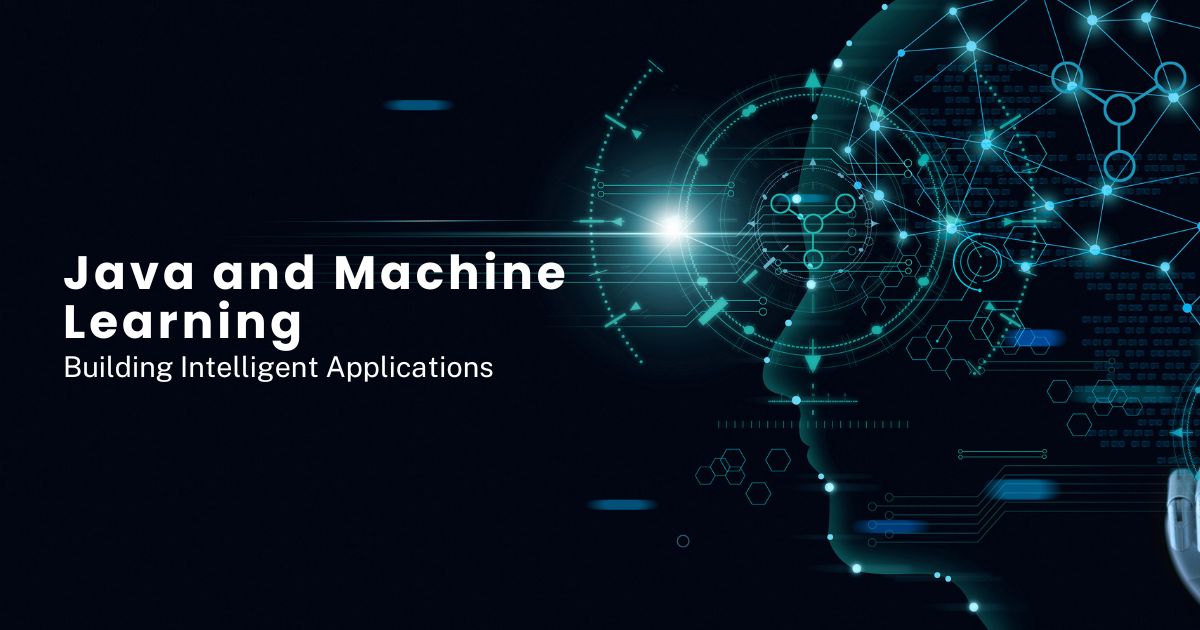In recent years, Java and machine learning have combined to revolutionize the development of intelligent applications. Java’s versatility and the potential of machine learning algorithms create robust solutions across various domains. For companies looking to explore this domain, hiring Java experts and Java developers becomes crucial. This article dives into how Java and machine learning integrate to build powerful applications, and why businesses should consider leveraging this combination.
1. Why Java for Machine Learning?
Java has been a preferred language in software development for decades. Its features like scalability, platform independence, and extensive library support make it a great choice for machine learning projects. Java’s popularity allows easy integration with existing systems, making it suitable for enterprise-level machine-learning applications.
- Extensive Libraries: Java provides libraries like Deeplearning4j, Weka, and MOA, which simplify implementing machine learning algorithms.
- Platform Independence: Java’s Write Once, Run Anywhere (WORA) approach makes it ideal for cross-platform applications.
- Scalability: Java supports large-scale applications, ensuring that machine learning models can handle vast datasets effectively.
With these advantages, businesses aiming to create intelligent solutions should hire Java developers to ensure seamless implementation of machine learning capabilities.
2. Key Java Libraries for Machine Learning
Several Java libraries facilitate machine learning development. Understanding these can help businesses make informed decisions when developing applications.
- Deeplearning4j (DL4J): A robust library for deep learning, DL4J allows developers to build and deploy neural networks. It is highly compatible with Java Virtual Machine (JVM) and scales efficiently across distributed systems.
- Weka: Weka is popular for data mining and pre-processing, offering tools for classification, regression, clustering, and more. It suits both beginners and advanced users.
- MOA (Massive Online Analysis): MOA is used for stream data mining, making it ideal for applications requiring real-time analysis.
Businesses looking to leverage these libraries often hire Java experts who understand the intricacies of these tools to create customized solutions.
3. Applications of Java and Machine Learning
Java’s integration with machine learning enables various industry-specific applications. Below are some areas where this combination is transforming businesses:
a. Predictive Analytics
Predictive analytics helps businesses make data-driven decisions. For example, e-commerce companies can analyze customer behavior to predict future buying patterns. Java’s ability to process large datasets combined with machine learning models like linear regression or decision trees makes it possible to deliver accurate predictions.
b. Natural Language Processing (NLP)
NLP is crucial for applications such as chatbots, voice recognition, and sentiment analysis. Java, along with NLP libraries like Stanford NLP and DL4J, enables developers to create efficient models that can understand and respond to human language.
c. Image Recognition
Machine learning models can classify and identify objects in images. Java libraries like DL4J support convolutional neural networks (CNNs), which are vital for image recognition tasks. Applications in healthcare, security, and retail industries benefit greatly from these models.
By leveraging these capabilities, companies can hire Java developers to create custom solutions tailored to their industry needs.
Must Read: Cost-Effective Strategies for Custom Android App Development
4. Challenges and Solutions in Java Machine Learning
Although Java is powerful, integrating machine learning can pose challenges. Here are some common hurdles and how to overcome them:
- Challenge: Handling Large Datasets
Solution: Java provides tools like Apache Hadoop and Spark for distributed computing, allowing efficient data handling. Hiring Java experts familiar with these tools ensures smooth integration. - Challenge: Model Training and Tuning
Solution: Java’s libraries offer pre-built models, but fine-tuning is necessary for optimal performance. Developers with experience in model tuning can achieve better results. - Challenge: Deployment Across Platforms
Solution: Java’s platform independence allows models to run seamlessly across different environments. Using Docker and Kubernetes can help manage deployments effectively.
Hiring the right talent to navigate these challenges is crucial for successful machine learning implementation in Java.
5. Future of Java and Machine Learning
The future of Java in machine learning looks promising, with the continuous evolution of libraries and frameworks. As AI adoption increases across industries, Java’s role will expand in building scalable and intelligent applications. With the rise of cloud computing, developers can leverage platforms like AWS and Google Cloud to deploy Java-based machine learning models more efficiently.
For businesses looking to capitalize on these trends, hiring Java experts becomes essential. These professionals can help navigate the complexities of integrating Java with advanced machine learning solutions.
Conclusion
Java and machine learning together create a powerful toolkit for building intelligent applications. From predictive analytics to NLP and image recognition, the combination offers immense potential. Java’s robust ecosystem and the availability of specialized libraries make it an ideal choice for complex machine-learning projects. For businesses, hiring Java developers is key to building tailored solutions that meet specific needs. With a skilled team, companies can harness the power of Java and machine learning to stay ahead in the competitive landscape.
As machine learning continues to shape the future, businesses should look to hire Java experts to guide them through this transformation, ensuring their solutions are efficient, scalable, and impactful. Reach out to industry professionals and explore the endless possibilities that this dynamic combination offers.
By understanding the strengths of Java and its compatibility with machine learning, companies can create impactful applications that cater to their evolving needs. The right expertise ensures that businesses can tackle challenges effectively and build solutions that drive growth and innovation.


